2042: A day in the Web3 life
A glimpse into a more immersive, experiential, and empowering internet
Abstract: This is Part II of the ‘Ultimate Promise of the Metaverse’ series. Part I (Meaning on Demand) was my first attempt to alleviate people's fears and skepticism about the notion of the 'metaverse'. It alludes to three overarching ways this future could be a net positive. A future that could foster new forms of mental wellness, democratize access to economic opportunity, and usher in new forms of political autonomy.
Here in 'Part II' I attempt to paint the picture of 'economic opportunity'. Particularly as it relates to the ‘creator & ownership economy’, along with the future of education as an enabling and self-reinforcing input.
While Part I was a bit fantastical, this future is much less imaginary, albeit this piece does take an imaginary tact... We’ll be bouncing between a futuristic ‘day in the life’ narrative, and a present day voice for some reflection and explanation.
The examples I use are already happening today across swaths of the internet; some via enlightened Web2.0 platforms, the more promising experiments via the world of crypto/blockchain (aka Web3). If you’re curious to dive deeper into each development, I’ve created links (the underlined sections) to real world examples/applications.
As we imagine these possibilities together, it's important to stay aligned on the proper definition of 'the metaverse'. We touched on it in my first post, 'WTF is Medium Energy?'. To refresh... it's not simply an immersive, virtual place we go to escape reality (although it can be, should you so choose). Rather, it's an emergent property of the internet, catalyzed by the collision of numerous technologies and defined as an era of complete digitization and connection. An era in which digitally native assets, relationships, property, and identity are held to a premium over our traditionally physical ones. The primary crux that (I believe) the metaverse depends on is ownership (particularly of assets and identity). Without it, we just have a medley of persistent immersive virtual experiences; in which case the metaverse already exists today.
As with any new technology, a hint of skepticism is always healthy. We should take a balanced approach to analyzing a variety of tradeoffs and potential second/third order effects. My next article will douse my often utopian visions with a sprinkle of skepticism and a healthy dose of pragmatism. It focuses on the raging Web2 vs. Web3 debate (link to essay here) which if you're paying attention, has turned your Twitter feed into a war zone. But that can wait.
For now, let's unleash a very optimistic (and perhaps, slightly naive) point of view in all its glory. And let's do so with pride, as I think a hint of naiveté is a good thing. It's a key ingredient to changing the world. Otherwise, we’ll be too nihilistic and practical to even try. Enjoy...
2042: A day in the life
The year is 2042. Your alarm goes off, but fret not. There is no where you have to be. Nothing you have to do. You roll out of bed with a sense of enthusiasm because of all the things you get to do. The hardest part of your day is deciding what to work on first.
When you enter the kitchen, a ruby red smoothie pops out of the fridge, freshly made with fruit from your robot-tended garden. Oh, a hint of cilantro? The culinary AI has outdone itself, yet again. You sit down at the table in your breakfast nook, put in your ear pods, and toss on your glasses. A holographic carousel materializes on the table with digital spheres representing your 'early morning' applications. Not social media, not email. Just a quote of inspiration, a reminder that its you and your partners anniversary, and a new meditation module from your favorite network of mindfulness content creators.
With a flick of the wrist, you select the 'meditation' sphere. You're suddenly transported to the edge of a cliff, overlooking a luscious rain forest and a roaring waterfall creating a shroud of mist below. Blanketed by the sounds of nature, you close your eyes, focus on your breath, and disappear.
A light bell rings and brings you back. Your breakfast nook slowly re-materializes and a text box floats into your field of view. "Congrats on your 100th session! You've reached Serenity Level 5." There's a list of perks: a new series of meditations, +15 Mindfulness tokens, and a SerenityDAO Membership NFT. Alas! You can now access their network of physical spaces for co-working, yoga, networking, events, and healthy food. Your partner is on Level 8 and has been raving about this membership for years.
Feeling calm and light, you take a shower, kiss your partner good morning as they lazily roll around in the sheets, and head into your office space. Upon entry, your voice assistant asks if you'd like the ambiance to be set to 'intense focus' or 'playful creativity'. You have a play date with your youngest kid later, might as well get in the mood now.
The light shifts to a turquoise blue hue, and the various 3D displays around the office come to life with the digital art pieces you tagged in your wallet as #play. They make you smile every time. They're all NFTs of course. Your favorite piece has a shining twinkle in the top right corner. A notification. The AR glasses track your eyes as you focus on the twinkle and you flick your wrist to select. It evolves into a message; an offer to buy the NFT from you at 10X what you paid. Thanks, but no thanks. On to your work.
You sit at your empty desk. No monitors, keyboards, or chords. Leaning back into your chair, you summon up your virtual workspace through your glasses. "Launch DAO dashboards". Three virtual screens appear and hover over your desk, each representing the digital HQ for the DAOs of which you're a member.
The first dashboard is YoloDAO. It's a small crew of your twelve closest friends who all happen to share a passion for music, artisan tequilas, and baking reality TV (and the associated baking stars, of course). Your squad originally formed the DAO to pool funds and invest in up-and-coming creators/entrepreneurs/bakers within each domain. It has since evolved into so much more. A place and a tribe where making money and having fun are one in the same.
You can see that eight of your friends are in the virtual house you all bought in Decentraland. Four of them are bowling, a couple are playing pool, and a few others are getting their sweat on in the virtual boxing ring. You'd love to jump into this immersive instantiation to hang out and catch up, but you're here today to make a bit of coin.
The first thing you check is your flash loan requests within a DeFi application connecting investors/patrons with creators. Your team put up $500k into a smart contract that acts as a loan pool. Creators looking to borrow crypto (BTC or ETH) to fund projects can get a loan from this smart contract that is guaranteed against their streaming revenue from existing copyrights, IP royalties, or business cash flows, all held as collateral. YoloDAO has five existing loans outstanding, each collecting 12% interest. Not bad. You cycle over to a list of open loan requests. Eighteen outstanding. Five of them stand out as promising, with existing traction and fan bases (according to the on-chain metrics of their tokenized content/IP). Next, the DeFi app scans the on-chain activity from each creators connected wallet to generate their on-chain credit scores. You select the top three and create a DAO proposal for the group to vote on their favorite creator to authorize a loan.
As you exit the DeFi app, a new notification appears. It's a holo-message from an upstart band that the DAO fell in love with last week. Your squad bought 5% of their recently released social token supply, giving you a stake in their future revenue streams. They're going places, you can just feel it. A volumetric capture of the band appears on your desk, each member a doll-house size representation. The lead singer steps forward.
"Thank you for attending our album launch party last week! We've airdropped you an NFT to commemorate the evening and the new album. Each NFT is a slight variation of the various sound tracks and album cover art. And each combo is algorithmically generated, evolving over time as our number of music downloads grow. It also gives you VIP access to all of our upcoming concerts for the next 5 years, along with invites to any of our private shows. We look forward to seeing you on the road!"
Context: Everyone is an investor
Tokens have the potential to change the world. It sounds silly, doesn't it? I naturally associate 'tokens' with my heroic feats at Chuck E. Cheese, acts of squirt gun marksmanship at the carnival, or items for barter in fantasy video games. It's easy to be dismissive of these nebulous 'digital thingies' (shout out mom). Names like Dogecoin, FlokiCoin, or the infamous (non-existent) Mongoose Coin don't exactly help. But let me assure you. This new asset class has the potential to accomplish something that has evaded humanity since the dawn of civilization. Part engine for enterprise, part great equalizer, part tool for fair governance... tokens just might, for the first time in history, give capitalists and socialists a reason to hold hands and skip off into the sunset with glee.
Why? The reasons are nuanced, but I think we can boil it down to this... For most of modern history, access to lucrative investment opportunities have been reserved for the 'in-crowd'. The good ol’ boys clubs of venture capitalists, record labels, art auction houses, and Hollywood studios. Not an accredited investor? Sorry. 'Don't have money, can't make money'. Forget your ability to self-educate, do your own due diligence, and manage your own risk. And they wonder why the wealth gap continues to widen...
With digital assets/tokens, everything changes. Everyone becomes an investor, anyone can access or provide capital with ease, and almost anything can be turned into an asset. The most important of which might be culture (to be explained later).
You've likely heard of this new paradigm dubbed as the Creator Economy. It often goes hand in hand with the 'Ownership Economy'. This is a world in which creators and their patrons/fans are no longer beholden to gate keepers, erroneous regulation, and centralized platforms that extract most of the value.
In this new paradigm, the supporters of a creator can coalesce as a community, own a piece of the project's success, and gain increasing rewards for adding value (rewards that are both virtual and/or redeemable for something in the real world). In turn, the creator is empowered with an army of evangelists (what I like to call a ‘marketing swarm’), and the ability to bootstrap any project they imagine, no permission required. They will also have a direct relationship with their fans, controlling how they choose to engage and transact, and even allowing fans to influence and shape a project. The veil of corporate interest between the creator and their community will be removed, opening up an entirely new design space for mutual participation.
It's difficult to imagine the creative possibilities and all the fun to be had when intermediaries no longer set the terms and control the narrative. It's going to bring about a cultural renaissance like we've never seen before. And I think we tend to discount the impact culture has on society. It's the operating system for everything we do, how we think, and what we say. We're going to soon see an explosion of niche, superior, and far more original projects and cultural contributions. Ones with second/third order effects that may lead to new forms of action, thought, and speech for society as a whole.
This isn't a far-off imagined future. It's already happening today. In its wake, venture capital as a distinct industry is slowly starting to disintegrate, eroded by empowered individuals and small groups who are deeply ingrained, connected, and knowledgeable within their niche realms of expertise. These groups are early experiments of a new concept in cryptoland called 'squad wealth'.
As defined in this seminal (must read) article, squad wealth is the ‘collectivization of finance, bringing investors together to support each other and a project. In so doing, the probability of success is increased and the downside diminished. Collectivization is about the group working together towards a shared objective by giving each other opportunity, leverage, and education, rather than individuals going at it alone'. Within these squads, Discord and Twitter are the new board rooms, DAOs the form of coordination, smart contracts the means of execution, and blockchains/crypto the rails and engines for value transfer and accrual. All of which can be brought to life with an internet connection and some clicks. Pretty powerful stuff. Who is your squad? How would you work together to achieve wealth? And what's stopping you?
Back to the future…
Okay, time to create. You switch over to your pseudonymous identity and wallet, ‘CosmicTrance’, and select the corresponding avatar. It's subtle, but you feel your psyche switch gears. Day to day, you are a parent, an investor, and a writer. But as CosmicTrance, you tap into a whole other side of yourself. One you wouldn't reveal in a boardroom, with your family, or even with your friends. This is your escape. How you unleash your inner child and exhaust the lighthearted mischievousness that has built up within.
Your glasses switch to VR mode, and you're dropped in front of an all glass building. The top of the entrance to this virtual office says, SerendipityDAO, where you (or should I say, CosmicTrance) are part of a small team specializing in immersive story telling, complete with 3D artists, game engine developers, producers, and writers. The team's particular focus is 'choose your own adventure' experiences, complete with various narratives, characters, and mini-games.
Most of the team's success has come from creating experiences within the Space Odyssey NFT ecosystem. This is a series of NFTs that in aggregate effectively act as an open database of 'space loot'. Individually, each NFT is a list of various items: space craft, skills, planets, minerals, alien races, and attributes. These text based primitives act as building blocks with which anyone can build all kinds of things on top: video games with the space craft, comic books on those planets, movies about the alien races, or immersive art exhibits based on those space items or minerals. The more things built on top, the more value these base layer NFTs accrue.
The savvy business titans you all are, you've used most of the DAOs treasury to buy up the NFT primitives that you use in your experiences. This allows the team to make money from both the NFT value accrual and the royalty streams from the experiences you build on top. For this current project, you're acting as a subDAO within the much larger MeowWolfDAO; the leading immersive experience creator in the metaverse. They're eager to tap into the Space Odyssey loot fan base and your team is the best in the business.
CosmicTance's realm of expertise? Narrative and character development. Prior to joining SerendpityDAO, you/CosmicTrance wrote a series of sci-fi novels, also based on the SpaceOddysey loot NFTs. The series recently took off and people fell in love with the various characters, particularly Wade Johnson, a maverick star-fighter pilot and savior of the galaxy's outer realms. With the use of Epic's MetaHuman tools and the latest GPT-8 machine learning tool, you were able to feed in the text and dialogue from your novels to train the AI and bring your novel’s virtual characters to life as 'non-player' avatars. Fortunately, you personally own the IP for each of these characters, each one existing within a smart contract on chain. Anyone can use your characters, and when they do, it produces royalty streams for you in return.
You recently bumped into an AR hologram of your favorite character creations at last years Art Basel event, Timeless Tim. He was acting as an AR virtual tour guide for space inspired art exhibits. Who would have thought he'd make for such a great art connoisseur. A proud moment, and a nice $35k royalty check from that event alone.
Context: Ownership Economy
For most of modern history, only a very small group of people could meaningfully impact culture. I'm talking about your celebrities, the record companies, Hollywood moguls, agencies, and certain brands. The internet has started to change this.
With social media, now anyone can contribute to culture. But the threshold for any one individual to capture meaningful amounts of value is very high. Most of the value is captured by the platforms (YouTube, Spotify, Medium, Facebook, etc) and a very small percentage of creators earn enough to self-sustain, much less thrive. Crypto has a proven track record of allowing both the short and long tail of creators to better monetize their contributions to culture, while allowing N number of external participants to invest and treat cultures as an asset class.
But the fight doesn't end there. Value capture is just one side of a two headed beast. The other is control over the means of production and distribution, of which intermediaries and platforms dominate today. What creators also need is a way to challenge that control and change who owns the means of production. DAOs and other forms of collective ownership might hold the answer.
DAOs make it possible for creators to work collaboratively without an external mediator dictating the terms of engagement. To steal from a great DAO article I read recently (shout out mystery author), "In a DAO, governance systems are decided by the members, and there are no external shareholders pressuring for profit extraction. Instead, in a creator DAO, the owners are the participants: those who make the content, distribute it, and consume and value it."
Media entrepreneur, Roy Price, wrote a Twitter thread about these ideas, particularly focused on the TV and film industry. Paraphrasing here... he discusses how over the last few years, some of the best content has come from outside the traditional Hollywood system. These are your Parasites, Squid Games, Atlanta, and Curb Your Enthusiasms of the world. All made by creators who were/are largely autonomous, and avoided pressure from the powers that be to edit their message and conform for a mass audience. Rather than air on the side of caution to make something 'good', something the majority would give a 6 of 7, they were able to take risks.
In the world of centralized, bureaucratic media development, Hollywood execs have a strong bias towards 'average', creating shows that follow the rules and appeal to the masses. Content that is contrarian and original might get a 10 from 30% of the audience, but a 3 from the remaining 70%. All too often, these shows just don't get made. But these are the shows that are rare, break new ground, and change the game. They're also the shows that change culture. Thanks to extreme persistence, Squid Games eventually saw the light of day. But sadly, most of these maverick creators/shows remain overlooked, ironically, making the best type of content all too rare.
Now imagine a pseudonymous, DeFi powered media system. One in which these 'rare' shows can be financed by anonymous wallets, with no social norms or pressures to conform holding them back.
Creators can use EVM (ethereum virtual machine) compatible currency to fund the media, while providing NFTs to fans, allowing them to guide the wider investing public by publicly endorsing projects. Roy Price likens these type of NFTs to a visible 'character trait' tied to your metaverse identity (a Game of Thrones fan, or a 'super sci-fi fan' as a pseudo-badge. Yet another interesting way to play with identify, value signaling, and tribe identification/formation in the metaverse).
The process would look like a NASDAQ of projects seeking funding, with DAOs submitting the projects. In Web2, you watch shows. In Web3, you watch shows you own and influence. Eventually, says Price, the 'head of programming' will just be a smart contract powered by some machine learning algorithms. With that same smart contract dividing up the shows revenues, distributing first to the original creator DAO, and then to individual wallets from all over the world. I don't know about you... but the inevitable creative and cultural explosion that would result from such a system excites the hell out of me.
Education of the Future
You put the final touches on the script for the MeowWolfDAO choose your own adventure experience. A few character dialogue tweaks here, a few plot development edits there, and you upload the text into the characters personality database. To double check your work, you summon Wade into the virtual space.
He's on edge and grumpy, rambling on about some woman who tricked him, stole his journal and galactic travel logs, and is no where to be found on-planet. He needs your help to find her. Will you join the cause? Nope, too busy. He throws up his hands with exasperation, stomps his feet, and starts to tremble with tears. Whoa, okay, a little weepy and dramatic for the Wade we all know and love. But you'll have to tweak that later. You're getting a holo-call notification. It's your oldest calling from boarding school. You accept the call and she materializes in 3D next to a frozen and mopey Wade.
"Geeez, what'd you do to him?"
"Welp, not quire sure yet. Love is complicated I guess... Never mind him, what's up?"
"My governance proposal is about to pass! 95% of the teachers and students are on board for the MAPS curriculum. Yeeee! I knew people would want to take it with me!" She said, bouncing with excitement.
"That's awesome honey! You better take extensive notes, I want to learn everything with you along the way!"
"I will I will. People said what really pushed them over the edge was the Mycelium Network AR game. Everyone loved it! Thank you so much for pushing me in that direction. Whoop, I'm late to lacrosse practice. Gotta run!"
She blows a kiss, producing a pair of virtual lips that flutter towards you through the air. The 3D lips explode upon arrival into thousands of tiny digital butterflies, swarming you before they slowly disappear. Your eyes start to mist over once your daughter leaves. Creators Journey is starting to fulfill its promise.
Developing this next generation high school has been a passion project with your closest friends in the creator economy for years. It's the educational institution you wished existed as a kid. A boarding school that is both physical and virtual in the metaverse, powered by a DAO, and owned and operated by the students and teachers. The school's mission is to help students find their 'zone of genius' at an early age. The teachers are all successful creators themselves, working together to build curriculum of all types. The result is a vast inventory of digital courses and experiences. VR field trips to explore exotic countries, all new cultures, deep sea caverns, moments in history, the list goes on. There are also AR lectures that drop your favorite musicians, athletes, artists, or entrepreneurs directly into your living room for a 1-1 masterclass. There's a job board with a seemingly endless list of internship opportunities across the metaverse, with new projects and businesses popping up everyday. Students can tap into this inventory to customize their curriculum and cultivate their own innate interests and passions. Or, like your daughter, they can propose entirely new curriculum that yet to exist.
The metaphorical apple that is your daughter did not stray far from your partners tree, developing a shared passion and curiosity for the power of plant medicines and psychedelics. Books about the medical applications for psilocybin, ayahuasca, and LSD litter her room. You've learned a new use case during every dinner for the past month. When MAPS released their template for a high school curriculum in psychedelics, she didn't wait a beat. Her DAO governance proposal was out the door the next day.
You're particularly proud of her ability to recruit a team and develop the Mycellium Network AR demo. For only a few weeks of development, the demo was surprisingly polished and compelling. It guides players through a simple educational experience in real forest environments, allowing them to visualize the vastness and complexity of the mycelium network as it facilitates communication and nourishment between plants, trees, and wildlife.
With a simple job posting and a white paper, she quickly found two Unity developers to build the demo. Both are students within Creators Journey, one based in India and the other in Brazil. Both developers were pseudonymous. But that didn't matter. Much of the best talent these days is taking this approach. By scanning their wallets, she could hire them with confidence immediately. No interview jitters, no one dimensional resume, and no bias standing in the way. All that mattered were the on-chain certificates in their wallets to validate completion of Unity AR development 101, 202, and 303, along with verifiable sample code from similar projects. The blockchain doesn't lie. These kids were good.
They also had big ideas to augment her vision, suggesting she take a page from the 'play to earn' playbook of successful metaverse games such as Axie Infinity, but with a spin. 'Learn to earn'. The Mycellium Network AR game would reward players with tokens as they completed tasks and demonstrated mastery of the topic. The distributed tokens could come from a treasury funded by MAPS itself in the form of BTC or ETH, or sponsors who want to spread knowledge on the power of mushrooms and psilocybin. Or, perhaps the tokens are native to the AR game itself. As players/students accumulate more tokens, they graduate into certain 'knowledge tiers' that qualify them for future token or NFT airdrops of various sorts. Gosh... if only learning was this fun and rewarding when you were a kid!
Context: University of the Future
Monetization and distribution are of course at the center of a thriving creator economy. But further upstream lies something equally if not more important; the means by which we help people tap into their own creative genius. Too many people lament about creativity, or their lack thereof. Despite common rhetoric, every person does indeed have a creative bone in their body. It's just a matter of identifying it and nurturing it early and often. Perhaps this is possible with better and more custom forms of education. Perhaps we can foster entire generations who will never know what it means to do things they hate or toil in ways that dampen the soul
As these examples allude, the combo of immersive tech and crypto could revolutionize how we engage and reward students for their work, potentially changing the very definition of what it means to be a student. Balaji Srinivasan is already running such an experiment today with his website 1729.com, where they offer crypto rewards for learning new skills, or completing small tasks. As for immersive and experiential education, these ideas are best explored in an essay called 'Hamilton and Disneys Education Flywheel', by one of my favorite writers, Packy McCormick. He discusses how the play Hamilton inflamed within him an entirely foreign level of curiosity in US history.
I had the exact same reaction he describes in his essay. The play created an insatiable desire to learn more about this man and our countries beginnings. Right after seeing the play I dove deep into Wikipedia, bought the Rob Chernow book, and had the Hamilton soundtrack on replay for a solid month. Do I know the words to every King George III song? Yep. A side effect I can live with given my newfound appreciation and understanding for my countries beginnings. My hidden Broadway aspirations aside, the takeaway is this: through the power of storytelling and creative IP, a previously non-existent yearning to learn and understand was sparked.
Packy goes on in his essay to imagine a world in which this type of content is the future of education. He lays out a business case for how and why Disney should package up IP like Hamilton, spin out all kinds of new experiences, formats, and flavors, and deliver them as part of a US history curriculum for youth.
No doubt, Disney would likely hit this out of the park, with the potential for a powerful flywheel effect. They already nail the first rung of said flywheel, content and compelling IP/narrative, acting as the basis for 'lessons' by world-class teachers. Imagine an interface within Disney+ that pops up after watching Hamilton, targeted at students, saying "Want to learn more? Click here to take the Hamilton US History course!" In this example, Disney could treat teachers (or perhaps a TeacherDAO) as partners, working with them to evolve existing IP or media into educational TV shows, video games, or interactive assessments. Perhaps Packy's most compelling insight is how this could free teachers from the constraints of local (publicly and woefully funded) classrooms and open the door to income generation on par with top actors, musicians, and athletes. This could in turn inspire more of the worlds talent to teach.
My favorite aspect of Packy's flywheel is the idea of 'Communities and Experiences'. Imagine educational virtual worlds, such as Hamliton for US History lessons in Roblox or Fortnite. Or immersive theme parks e.g. the new Star Wars: Galaxy's Edge theme, in which you feel like a participant in the Star Wars universe. But in this case, it could be 'Hamilton Land', akin to the stale field trip that is Colonial Williamsburg, but much more fun, engrossing, and memorable. Within these virtual worlds, students from around the world could meet, create, and continue to explore the IP and supporting lessons (potentially creating the nucleus of their 'squad' for future endeavors as well?).
The final leg of this flywheel is where the game really starts to change for students, vaulting them into their realm of creation, entrepreneurship, and self-sufficiency. Consider the fact that the internet rewards those who create. Packy proposes replacing traditional tests with creative projects in which students showcase their knowledge. This could be videos that expand on Hamilton's story, podcasts that dive into a particular topics, games that promote various characters. Students could receive pass/fail for completion of the project, while gaining exposure and the opportunity to build their brand and presence within a desired field.
As a cherry on top, Packy suggests that the very best student produced content could be repurposed as 'top of the funnel' content for Disney’s formal lessons or curriculum, increasing their exposure and incentivizing them to do their best work. This formula could work across hundreds of IPs, with all type of new characters and worlds (real or imagined). My synopsis doesn't do Packy's essay justice. I adamantly suggest bookmarking and reading it for yourself.
My closing thought on this topic... It would be cool to see Disney make this all happen. But why not a DAO of creators and educators? Sure, iconic IP is the long pole in the tent, but they could pool funds to acquire (heck, DAOs are doing this today to buy the constitution and buy NBA teams. Why not IP?). I predict that we will see this attempted within the next 5 years.
And… back to 2030
Your AI assistant nudges you out of your mycelium day dream. Ah yes, it's your anniversary tonight. Time to get a gift. You ask your the assistant to show a list of top gifts ideas based on the past 12 months of conversation with your partner. A new self-driving car, a luxury safari vacation in South Africa, and piece of art from his/her favorite up and coming artists. Expensive taste... whats new. But nothing you can't manage. Each price tag roughly equates to the weekly royalty streams in ETH from your sci-fi character IP. You could use a vacation… You switch to VR mode, and are suddenly transported into an immersive tour of the glamping venue nestled amidst the South African wilderness. Wow... one helluva way to unplug. Safari it is. Right within your wallet interface, you take out a loan against those ETH royalty streams and receive USD stable coins in return. Taxable event avoided, safari booked.
As if right on cue, your youngest pokes his head into the office. "Time for our play date!" he yelps with enthusiasm. You check your watch and see its only 1pm. A few hours of 'work' should do it for the day.
'Indeed it is. Hey, do you want to see what your sister built?'
'Yeah!"
As you walk out of your office into the living room, you're met with a gigantic mess. Overturned furniture, stray pillows and cushions, a flipped over vase with dirt and plants on the ground. Unquestionably, this is the familiar wake of AR laser tag, woefully played indoors.
"What did I tell you about playing laser tag inside!" With each increasing decibel of your voice, and each notch up in blood pressure, a small red dot starts to increasingly blink and grow in the top right corner of your field of view. A subtle yet effective reminder that your emotions are getting the best of you. You pause, take a deep breath, and address your sons transgressions with a calmer voice and level head. His lesson learned and understanding cemented (hopefully), you instruct him to partner with the cleaning robots and clean up the mess. If he does a good enough job, and can lead the robots to a remedy in under 30 mins, he'll get to go out and play. With the authority of a tiny general-in-training, he barks high pitched commands that send the robots into a tizzy of tidiness, all while grabbing his own vacuum to join the foray.
You congratulate him on a job well done, acknowledging both his leadership and knack for hygiene. Okay, play date earned. You share the mycelium game with his 'youth-AR' glasses and drop the demo into his 'approved content' folder. Hand in hand, you approach the forest that is your backyard, fire up the mycelium AR app, and surrender to the entirely new wonders and insights of this place you've roamed a thousand times before.




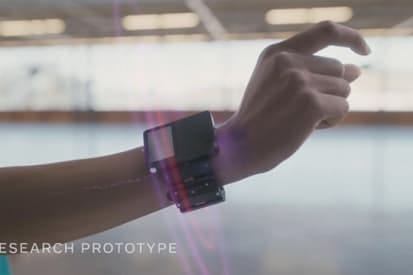




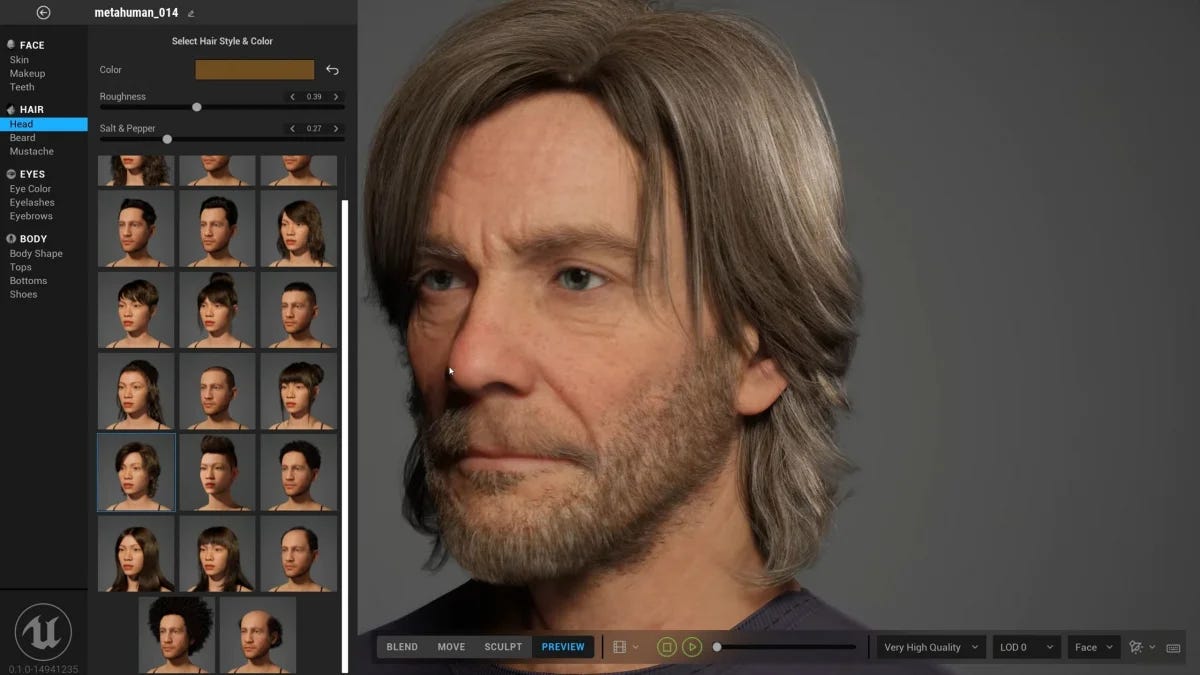
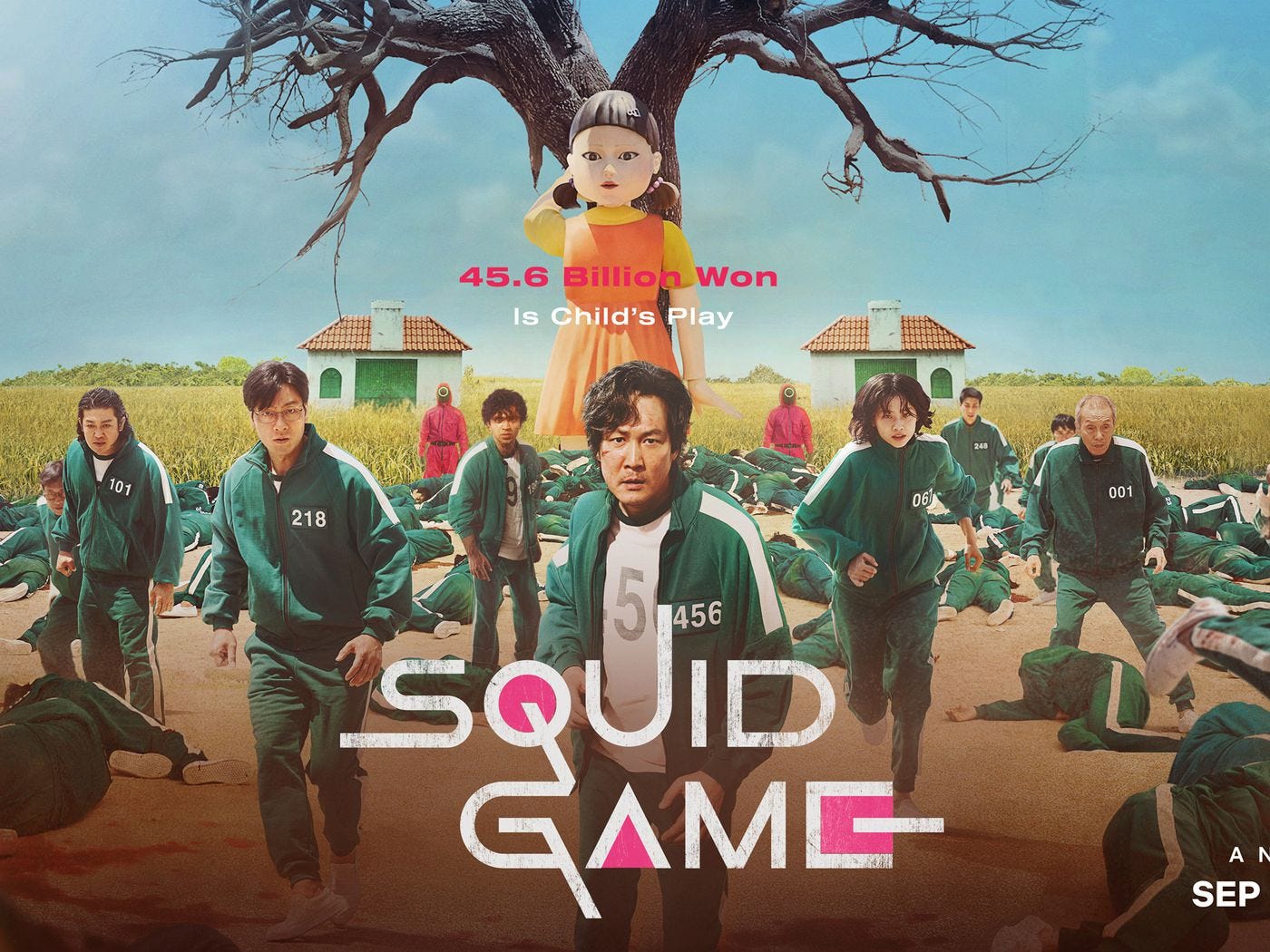
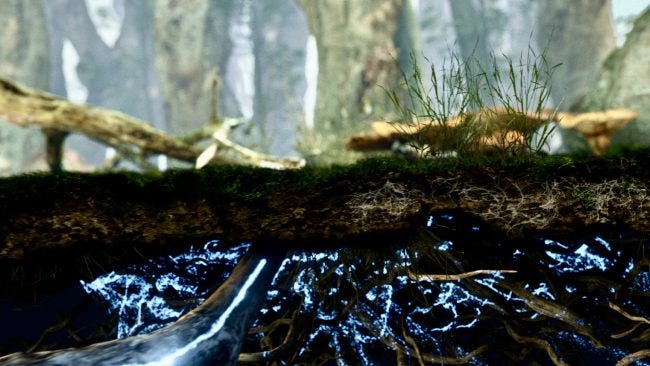
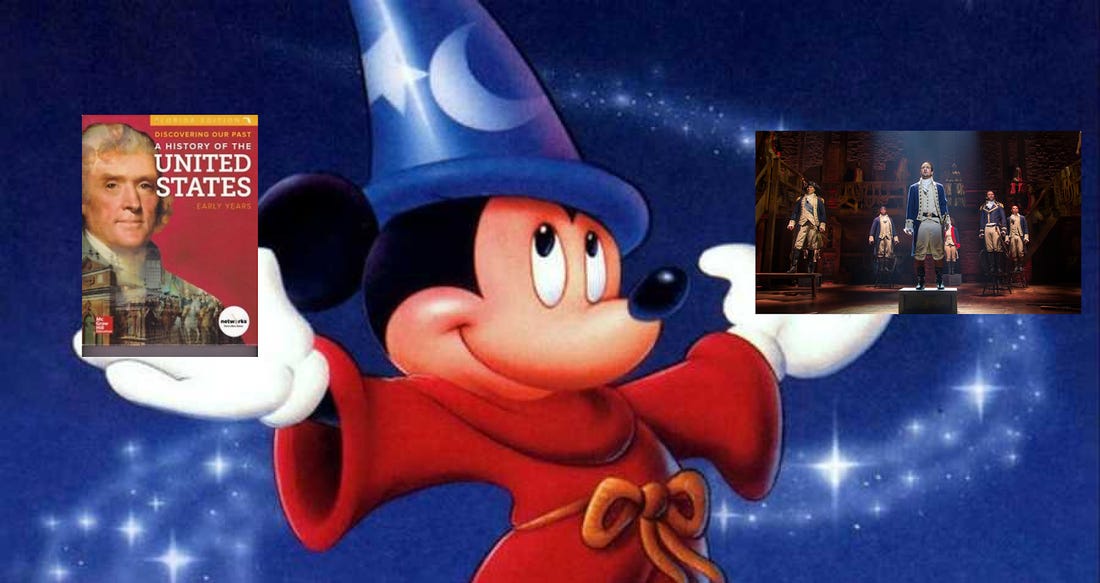

Love the 2030 “Day in the Life” - it’s so much easier to see the utility of the tech when it’s presented from this perspective!
What a fun journey into the Web3 future.